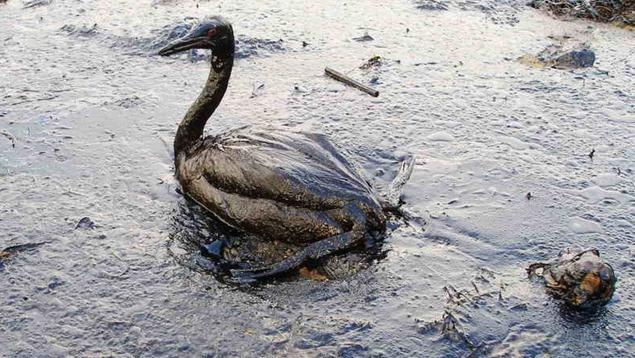Oil spill impacts

Twenty-two years after the Exxon Valdez oil spill catastrophe in Alaska, ecosystems and communities have still not fully recovered. Oil can still be found on beaches in Prince William Sound and the herring fishery is still closed.
The Exxon Valdez oil spill covered nearly 2,000 km of coastline and killed at least 1,000-2,800 sea otters, 250,000 seabirds, 302 harbour seals and countless invertebrates like crabs and shellfish. Many killer whales simply went missing.
Spilled oil has immediate (acute) and long term (chronic) effects in the environment. Wildlife can be exposed directly by swimming through oil, breathing in toxic vapours, eating it on their food or even when they’re just trying to clean themselves off. It can cause severe health issues, if not death. Even a dime-sized glob of oil can kill a bird. It interferes with the waterproofing, buoyancy and insulation that feathers provide. Hypothermia and then death is often the result.
Check out our interactive map: Oil and Water. Navigate the Facts to learn more about ecological impacts we can expect if we have an oil spill on our coast.

